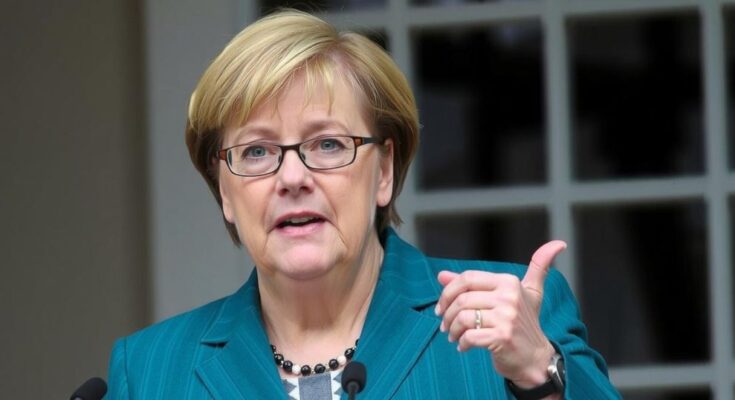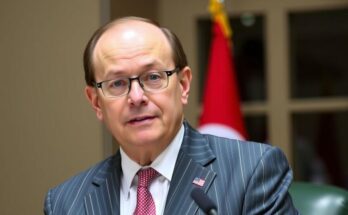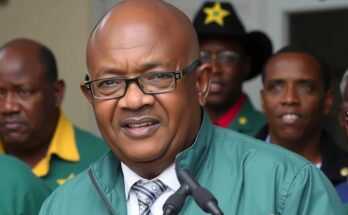German President Frank-Walter Steinmeier has dissolved parliament and announced February 23 as the date for early elections after Chancellor Olaf Scholz’s coalition government fell apart. The political landscape is heavily influenced by a recent deadly attack and ongoing discussions about immigration, security, and economic policies as parties prepare for the electoral race. Steinmeier has called for a campaign grounded in respect and transparency amidst rising tensions surrounding these issues.
In a significant political development, German President Frank-Walter Steinmeier has officially dissolved parliament and set a date for early elections on February 23. This decision follows the collapse of Chancellor Olaf Scholz’s coalition government due to internal strife over revitalizing Germany’s economy. The recent tragic car-ramming attack at a Christmas market has intensified discussions around public safety and immigration policies, prompting Steinmeier to call for a campaign marked by respect and decency.
President Steinmeier emphasized the urgent necessity for “political stability” while urging all parties to conduct their campaigns with fairness and transparency, warning against the potential for external influences in the electoral process. In the lead-up to the election, the conservative CDU/CSU party ranks highest in polls, followed by the far-right Alternative for Germany (AfD), with Scholz’s Social Democrats trailing significantly in public support.
Steinmeier addressed the numerous challenges awaiting the next government, including economic instability exacerbated by geopolitical conflicts and pressing national discussions regarding immigration and climate change. Both the CDU and the SPD share a commitment to bolstering Germany’s defense amid ongoing conflicts, while diverging on fiscal strategies and energy policies. Scholz, as a caretaker chancellor, will remain in office until the new government is established after the elections.
The recent dissolution of the German parliament marks a critical juncture in the nation’s political landscape, triggered by the failure of Chancellor Olaf Scholz’s coalition government. Internal disagreements and external pressures, such as security crises and economic challenges, have shaped the urgency of early elections. Public sentiment is shifting, particularly influenced by the rising conservative and far-right parties, reflecting concerns over immigration and social policies. This electoral period will see heightened discourse around key issues including defense spending, economic revitalization, and climate initiatives, all of which will be pivotal in shaping Germany’s trajectory.
The dissolution of parliament by President Steinmeier and the setting of an early election date underscores the urgency for political stability in Germany. With pressing issues such as economic recovery, immigration, and security taking center stage, the upcoming elections are poised to have significant ramifications for the country’s future. The divergent strategies of the political parties will be closely scrutinized as the electorate prepares to make crucial choices regarding the nation’s governance.
Original Source: www.rfi.fr




